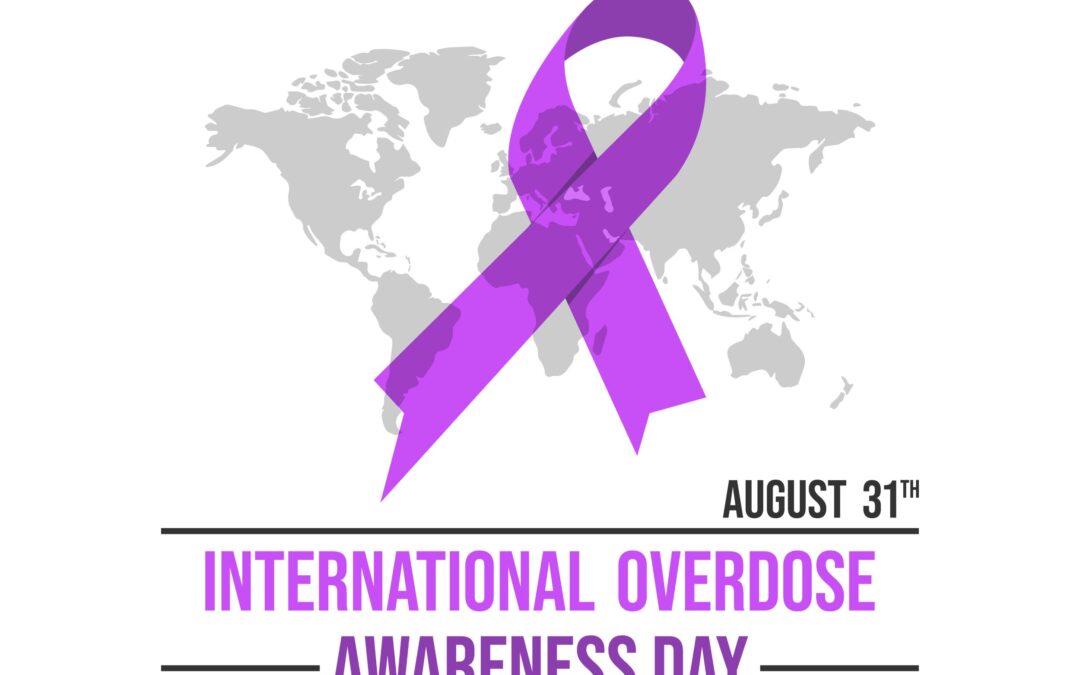International Overdose Awareness Day (IOAD), which was just held on August 31, is an annual global event dedicated to raising awareness about overdose, promoting prevention, and advocating for treatment and support services. Overdose is a serious public health issue that affects millions of people worldwide. While prevention is key, understanding overdose awareness and emergency treatments can save lives.
People who are prescribed high-dose opioid medications by a doctor (greater or equal to 50 morphine milligram equivalents per day) should consider carrying an emergency opioid overdose reversal medication and keeping it at home.[1] Additionally, people who use opioids and benzodiazepines together, people who use illegal opioids and those experiencing opioid use disorder (OUD) should also consider carrying these opioid overdose reversal medications.
Emergency Treatments
Naloxone gained FDA approval in 1971 and has been used for decades by paramedics and hospitals for opioid overdoses. In March 2023, the FDA approved the first over the counter naloxone nasal spray (Narcan). Naloxone is the most widely used and well-known opioid reversal medication. Later that year, in May 2023, the FDA approved the first nalmefene hydrochloride nasal spray (Opvee), available by prescription only. Most recently, on August 7, 2024, the FDA approved the first nalmefene hydrochloride auto-injector (Zurnai), also available by prescription only[2].
What to look for?
Two formulations of naloxone nasal spray are available without a prescription. With the added options of prescription alternatives, there could also be an increased potential for fraudulent behaviors. Excessive prescribing or dispensing of a new pharmacological product could be an indication of fraudulent promotions, incentivized tactics to boost profits and/or collusion.
HCFS has you covered!
Data mining to find prescribing and dispensing outliers can be difficult thus creating a higher exposure risk for potential overpayments. If you’re using the HCFSPlatform™, we have you covered. Our Artificial Intelligence (AI) models can help identify spikes in payments and other anomalous billing patterns. Additionally, we have specific Alerts set up to flag both prescribing outliers and dispensing outliers for these opioid overdose reversal medications:
[5327-20] – OUTLIER, OPVEE (NALMEFENE): This Alert identifies pharmacies excessively dispensing Opvee when compared to their peers. (PHARMACY PEER COMPARISON)
[5327-21] – OUTLIER, OPVEE (NALMEFENE): This Alert identifies pharmacies excessively dispensing Opvee when compared to their peers. (PRESCRIBER PEER COMPARISON)
[5334-20] – OUTLIER, ZURNAI (NALMEFENE HYDROCHLORIDE): This Alert identifies providers excessively prescribing Zurnai auto-injectors for the emergency treatment of opioid overdoses, when compared to their peers. (PRESCRIBER PEER COMPARISON)
[5334-21] – OUTLIER, ZURNAI (NALMEFENE HYDROCHLORIDE): This Alert identifies pharmacies excessively dispensing Zurnai auto-injectors for the emergency treatment of opioid overdoses, when compared to their peers. (PHARMACY PEER COMPARISON)
[1] https://www.cdc.gov/stop-overdose/caring/naloxone.html
[2] https://www.fda.gov/news-events/press-announcements/fda-approves-first-nalmefene-hydrochloride-auto-injector-reverse-opioid-overdose
If you have questions or comments you may email us at [email protected].

